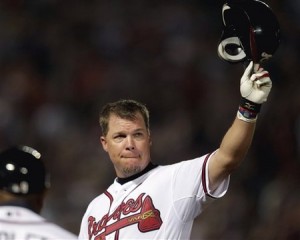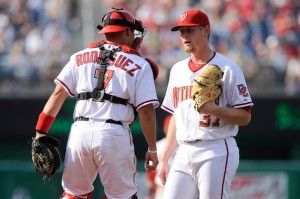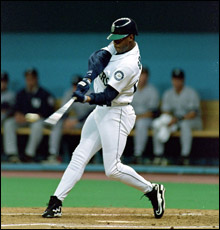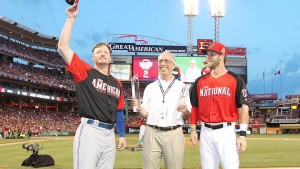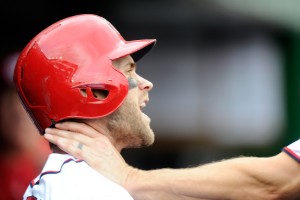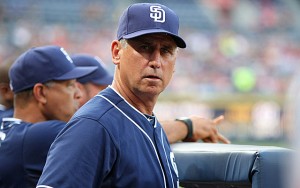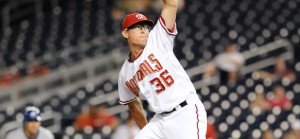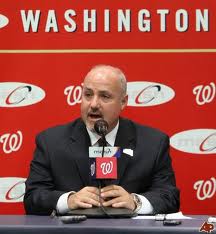Its January, so that means Hall of Fame Ballot time. BBWAA Writers who were not completely disgusted by Joe Morgan‘s ridiculous letter to the writers should have mailed in their ballots by 12/31/17.
If you still care about Hall of Fame voting, then this post is for you. Which I do … because its the only such career-recognizing institution for our sport … even if the people running the museum are tone-deaf morons who want to make it harder to get candidates in rather than easier despite mounds of evidence that the 80s and 90s are vastly under represented in the Hall. They continue to enrage rationalists by doing thins like shortening the time players are allowed on the ballot, refusing to expand the ballot to allow more candidates and most recently refusing to make all ballots public so dinosaurs can continue to be unaccountable for their awful voting decisions.
Here’s two key links for you, if you’re still reading:
- Baseball-Reference.com’s 2018 ballot with stats
- Ryan Thibodaux‘s online tracker of all HoF votes . Which is great for those who do talk about their votes … but is tough to use as a predictor because generally the non-public votes are more in the Murray Chass category of voting; too few candidates and no consistency over who he picks.
My consideration of candidates, unlike my consideration of a lot of stuff, comes down more to “feel” than it does to stats. I know Jay Jaffe has his great JAWS thing that tries to do both peak and longevity. I know b-r.com has a bunch of metrics per player. That’s all great. But it isn’t the hall of stats, it isn’t the hall of WAR. Its the hall of Fame. Its the hall of marquee players from their day. I cannot remember the pundit (perhaps Bill James or Joe Posnanski), but they said something to the effect of if the player didn’t “scare” you when he came to bat, or if you didn’t get excited when the pitcher took the mound … then odds are they weren’t a hall of famer.
I look at the players I’d vote for and … they’re the guys you paid money to see. They’re the arms that were on the mound and you gave the opposing team little chance. They’re the sluggers who you wanted up in the 9th inning of a tie game. That’s what makes the game exciting and that’s the lens I like to use when judging players. Yeah its subjective and partisan; so is every person voting in the BBWAA.
With my imaginary ballot, here’s how i’d vote. Since there’s a (ridiculous) limit of 10 players per ballot, I’ll list these players in rough order of voting priority to start:
New to the 2018 Ballot Candidates:
- Absolute Yes on Chipper Jones, Jim Thome
- Less emphatic Yes for Scott Rolen
- Slight pause to consider Andruw Jones, Omar Vizquel, Johan Santana
- No on everyone else (though there are still some interesting names on that list)
Returning Ballot Candidates:
- Absolute Yes on Roger Clemens, Barry Bonds
- More tepid Yes on Vladimir Guerrero, Curt Schilling, Manny Ramirez, Edgar Martinez, Mike Mussina, Fred McGriff, Trevor Hoffman
- Pass on Jeff Kent, Larry Walker, Gary Sheffield, Billy Wagner, Sammy Sosa
Discussions on my opinions from a hypocritical litmus test stand point:
- Why support Hoffman but not Wagner? Probably a fair question and probably not supported by stats when you compare all three guys together. But that’s why its the “Hall of Fame” and not the “Hall of WAR” or the “Hall of Stats.” Hoffman was more famous than these other relievers. I always viewed Smith as a good-but-not-great reliever who compiled stats, and I viewed Wagner as an electric and under-rated closer without near the career accomplishments of Hoffman.
- Why support McGriff/Guerrero but not Walker? You can make the argument that Walker’s numbers were a product of Colorado … and you can make the alternative argument too. I think for me the fact that Walker couldn’t reach even 400 homers while playing in the launching pad in Denver is an indictment of his career. Walker was a fine hitter … but he never inspired the league wide “fear” that Guerrero and McGriff did. He’s in the “Hall of Good” but not the “Hall of Fame” for me. Also it is worth noting that McGriff finished his career with 493 homers, but missed months out of the 1994 season at his peak. Had he eclipsed 500 homers … i think we’re having a different conversation about him. These artificial numbers (300, 3000, 500) are pretty important to voters. Guerrero himself was for a time absolutely “the best player in the game,” a title that I don’t think Walker can come close to claiming.
- Why support Bonds and Ramirez but not Sosa? Something about Sosa’s career just screams “artificial.” He went from being a 35-home run hitter to a 66-home run hitter overnight, he has PED suspisions and a corked bat on his resume, and his skills disappeared as soon as testing became the norm.
So, if you include all firm Yeses and more tepid Yeses … I have 12 candidates. Probably like everyone else who thinks like I do; too many guys for the ballot. So who do you cut? Probably I’d trim the ballot to 10 by cutting McGriff and Hoffman. I keep Manny Ramirez on despite his positive tests because I don’t think there was a better RH hitter during the 1990s. I support Clemens/Bonds because I just don’t see how you can have a museum that excludes a 7-time MVP winner or a 7-time Cy Young winner, no matter what you think they took or when.
Nats connected candidates: excluding the Montreal guys, we have two down-ballot guys who will be lucky to get a single vote: Livan Hernandez and Brad Lidge. So far, zero votes for either guy, no surprise there.
Quick thoughts on the BBHOF tracker results so far:
- Bonds/Clemens nearing 70% on public ballots, and keep increasing. I’m glad to see this.
- Who the heck voted for Johnny Damon?
- So far, 3 looking like total locks (Guerrero, Jones, Thome) with the odds of Hoffman also going in strong.
- It seems like both Schilling and Mussina will drastically increase their vote totals this year, also a good thing.
- I cannot believe how little support Rolen is getting.
- Likewise, it looks like Andruw Jones may drop off the ballot! that’s crazy; i realize he fell off a cliff, but he was among the best in the game for many years.
- Somewhat surprised with Vizquel’s higher totals (28% as of this writing); no i don’t think he’s a HoFamer … but i do think he deserves some consideration.
Care to argue about the HoF?
